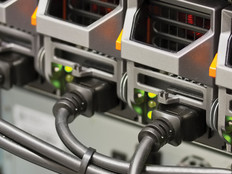Agencies Find that iPads Help Mobilize their Workforces
Charles J. De Sanno doesn’t sleep with an Apple iPad under his pillow, but he takes it just about everywhere else.
For the past year, the executive director of enterprise infrastructure engineering for the Veteran Affairs Department has been using an iPad instead of a notebook computer as part of a VA pilot program. Now, the 275,000-employee department is poised to introduce tablets to a limited number of field workers.
Agencies across the government have been feeling pressure from users who want to employ tablet PCs at work — and with good reason. A tablet’s larger display and intuitive touchscreen make it easier to use than a smartphone. At around 1.5 pounds, tablets are more portable than netbooks or notebooks, often with twice the battery life. And the total cost of ownership for a $500 tablet can be much cheaper than either a smartphone or a notebook, especially when factoring in the cost of wireless contracts.
At the VA, moving to tablets makes a lot of sense, especially for mobile care givers, De Sanno says.
“This is not us saying, ‘Great, bring your tablet to work. You can load apps on it? Isn’t that cool?’ ” he says. “Organizations need to realize tablets are more powerful than desktop computers simply because they are mobile. Devices like iPads and Android tablets can significantly enhance the delivery of healthcare, bringing the information to care givers where and when they need it.”
Similarly, the State Department has a policy for public affairs officers to purchase mobile Internet and multimedia devices including iPods, iPads, iPhones, Amazon Kindles, Android tablets and similar tools to enhance public outreach efforts. It’s all a part of 21st century “statecraft,” says Bryan Pagliano, a special adviser to State’s Bureau of Information Resource Management.
For example, instead of carrying 20 pounds of paper in a briefing book, a State employee could haul that and much more on a tablet or e-reader, Pagliano says.
“Like other agencies, we’re all trying to figure out how to mobilize our workforces and give users the devices they want,” he says. “For State Department diplomats working in the field with constituents, the more they can be away from their desks, the happier and more efficient they will be.”
2.5 million The number of Android malware strains estimated to be in the wild by 2012
SOURCE: G Data SecurityLabs, September 2011
Yet deploying tablets involves unique challenges, notes Craig Mathias, a principal at Farpoint Group, an advisory firm specializing in wireless and mobile technologies.
As with any mobile device, tablets must be managed, Mathias says. Data at rest needs to be encrypted, in case a device is lost or stolen. The ability of users to download applications should be tightly controlled.
“We recommend against downloading any commercial apps until they are approved by internal IT staff,” Mathias says. “Many people assume if an app shows up in the iTunes Store or Android Market it’s been vetted, but that’s not necessarily the case.”
State has yet to allow any tablets on its internal network while it irons out security issues, Pagliano notes. VA’s De Sanno says the current state of mobile device management, while adequate for an early device rollout, is still far from where it ultimately needs to be.
“We’ll be cutting our teeth on our pilot — learning the best practices for rolling out and managing devices,” he says. “But as one of the largest IT organizations in the world, we’re hoping to make these products better for the enterprise and learn a little bit in the process.”







